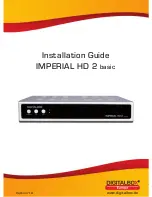
DANIELS
DANIELS
ELECTRONICS LTD.
ELECTRONICS LTD.
TM
TM
TN100 System Installation and Troubleshooting
MT-3 Radio Systems
Daniels radio systems are designed for operation in highly varied conditions. Your application may
require high performance radio systems (intermod and selectivity) for operation in congested radio sites,
or operation over wide temperatures using battery solar powered systems (low current drain). A synthe-
sized radio may be appropriate for your emergency communications systems, or a crystal radio may be
needed for your data application. Daniels manufactures a diverse range of radio products tailored to the
type of operation you need.
The MT-3 radio system is characterized by high performance and reliability, whether it is a remote, low
current repeater or a high performance base station. The total system is designed to provide dependable,
low maintenance performance and great flexibility for expansion and servicing.
The MT-3 series of radio and control modules are packaged in the compact Eurostandard housing with
anodized aluminum front panels, and are ruggedly designed for remote or transportable applications. All
of the modules use high reliability components and corrosion resistant fasteners.
The MT-3 radio system is specifically designed to deliver high performance under adverse conditions.
Voltage stress testing and a 24 hour burn-in is performed on the radio system and performance of the sys-
tem at room temperature (25
°°
C) is documented and measured. As an option, extensive environmental
testing can be conducted over the temperature range - 40
°°
C to + 60
°°
C and the performance measured to
ensure compliance with the design specifications.
A Daniels MT-3 radio system consists of seperate RF receiver and transmitter modules plugged into a
standard 19” subrack. Each subrack also requires a control card and system monitor. External connec-
tions to the system (COR, PTT, audio, channel select, etc.) are made through an auxiliary connector on
the rear of the subrack. An optional cable or terminal strip connector is available to connect externally
through the auxiliary connector to the radio system. Most internal connections and control functions
(audio routing, COR - PTT, CTCSS, hang timers) are controlled by the audio control card. Contact the
factory for more information on the many custom configurations possible.
General Overview
Page 1 of 9
43 Erie Street
Toll Free
Canada & U.S.A.
International
Internet
Victoria, B.C.
Phone:
1-800-664-4066
Phone:
250-382-8268
e-mail:
Canada V8V 1P8
Fax:
1-877-750-0004
Fax:
250-382-6139
web:
www.danelec.com
TECHNICAL NOTES
TN100 Rev 3-0-0 Sep 08
© Copyright 2008 Daniels Electronics Ltd. All rights reserved.
TT
hh
iiss
pp
rroo
dd
uu
cc
tt
hh
aa
ss
bb
ee
ee
nn
dd
iiss
cc
oo
nn
ttii
nn
uu
ee
dd
aa
nn
dd
iiss
nn
oo
lloo
nn
gg
ee
rr
mm
aa
nn
uu
ffaa
cc
ttuu
rree
dd
bb
yy
DD
aa
nn
iiee
llss
EE
llee
cc
ttrr
oo
nn
iicc
ss
LL
ttdd
..



























